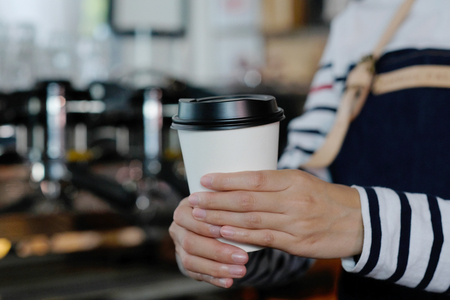A Brew on the Brink: The Current State of Coffee Packaging in Britain
Britain’s coffee scene has blossomed beyond the humble “cuppa,” with independent roasters and high-street cafes now at the heart of daily life from Edinburgh to Brighton. This vibrant culture has significantly influenced today’s coffee packaging, which must balance British sensibility with evolving consumer expectations. Local roasters are faced with a demanding audience—one that values both the artisan charm of small-batch beans and the convenience of grab-and-go lifestyles. As a result, packaging in Britain walks a delicate line between tradition and innovation, striving to reflect authenticity while embracing modern design trends. However, challenges persist. For many independent businesses, sourcing sustainable yet cost-effective packaging remains a tightrope walk due to limited budgets and scale. Meanwhile, the pressure mounts from environmentally conscious consumers who expect compostable bags, recyclable labels, and minimal plastic use as standard. The dynamic interplay between aesthetic appeal, practical usability, and environmental responsibility continues to shape how British coffee is packaged today—setting the stage for what comes next in this ever-evolving market.
2. Packaging Trends Stirring the Industry
The British coffee scene is buzzing with innovation, and packaging is at the heart of this transformation. As consumers across the UK become increasingly eco-conscious and design-savvy, brands are stepping up to meet new expectations. Let’s explore three packaging trends that are shaping the future: eco-friendly materials, minimalist aesthetics, and smart packaging.
Eco-Friendly Materials: A Sustainable Shift
Sustainability isn’t just a buzzword—it’s a movement that’s pushing coffee brands to rethink their packaging from the ground up. Across Britain, there’s a distinct shift towards compostable bags, recyclable cartons, and biodegradable films. These choices not only reduce environmental impact but also resonate with consumers looking for greener options on their weekly shop. The move towards plastic-free or plant-based packaging is especially strong in independent roasteries from London to Edinburgh.
Packaging Material Comparison
| Material Type | Sustainability | Typical Use in UK Coffee Market |
|---|---|---|
| Compostable Film | High (breaks down naturally) | Specialty coffee pouches |
| Recycled Paperboard | Moderate (recyclable & renewable) | Coffee gift boxes, sleeves |
| Plant-based Plastics | High (from renewable sources) | Single-serve capsules, bags |
| Traditional Plastics | Low (difficult to recycle) | Mainstream supermarket packs (declining use) |
Minimalist Aesthetics: Less is More
British consumers are embracing the ‘less is more’ mantra when it comes to design. Minimalist coffee packaging, with clean lines and understated graphics, is dominating shelves in both boutique shops and high-street supermarkets. This trend not only appeals to modern tastes but allows brands to highlight their ethical credentials—think simple labels detailing origin stories or sustainability certifications.
Smart Packaging: Tech Meets Taste
The rise of smart packaging is adding another layer of intrigue for UK coffee lovers. From QR codes linking to farm-to-cup stories to freshness indicators ensuring peak flavour, technology is making its mark on how coffee is presented and experienced. Some forward-thinking brands are even experimenting with NFC tags for interactive experiences—perfect for curious customers wanting more than just a caffeine fix.
The Takeaway for British Brands
The message is clear: UK coffee packaging is evolving rapidly, blending sustainability, style, and tech-driven engagement. As these trends continue to gather pace, brands willing to innovate will find themselves perfectly placed to capture the hearts (and mugs) of Britain’s discerning coffee drinkers.
![]()
3. Sourcing Locally, Thinking Globally: Supply Chain Impacts
In the evolving landscape of British coffee culture, sourcing and supply chains are undergoing a thoughtful transformation. Homegrown brands are increasingly turning their attention to locally sourced packaging materials—think recycled paper from UK mills or biodegradable films made in Yorkshire—in a bid to reduce carbon footprints and foster community resilience. This movement isn’t just about patriotism; it’s a strategic response to consumer demand for transparency and traceability, as well as the urgent need to address climate change.
The Local Advantage
By championing local suppliers, British coffee companies not only support the domestic economy but also streamline logistics, cutting down on transportation emissions and delays. Smaller supply loops mean fresher stock and more reliable timelines—a win-win for roasters and eco-conscious sippers alike.
Meeting Global Sustainability Standards
However, local doesn’t mean parochial. Many UK brands are aligning with international sustainability benchmarks such as the EU Packaging and Packaging Waste Directive or BRCGS standards, ensuring that their efforts stand up to global scrutiny. By blending local ingenuity with international best practice, they’re setting new standards for what ethical packaging can look like on a world stage.
Beyond Borders: Collaborative Innovation
This dual focus has prompted creative partnerships between British businesses and global innovators—whether that’s trialling new compostable laminates developed in Scandinavia or participating in pan-European recycling initiatives. The result is a vibrant ecosystem where homegrown solutions meet world-leading expertise, driving both sustainability and style in every cup.
For Britain’s coffee industry, the future of packaging lies at this intersection of local roots and global ambition. The next wave of innovation will come from those who balance heritage with horizon—supporting UK communities while embracing international responsibility.
4. The Green Bean Revolution: Sustainable Solutions in Practice
Britain’s coffee scene is undergoing a dynamic transformation, with sustainability at its very heart. Innovative practices are cropping up across the UK, driven by both consumer demand and pioneering brands eager to reduce their environmental footprint. Let’s shine a spotlight on how compostable bags, refill schemes, and a fresh wave of eco-conscious packaging are making it easier than ever for Brits to enjoy their daily brew responsibly.
Compostable Bags: From Bean to Bin
One of the most significant shifts in coffee packaging is the adoption of compostable bags. These bags, made from plant-based materials such as cornstarch or cellulose, offer an alternative to traditional plastics. When disposed of correctly, they break down naturally—leaving no trace behind. British roasters like Union Hand-Roasted Coffee and Pact Coffee are leading the charge, providing fully compostable packaging that aligns perfectly with the UK’s growing home-composting movement.
Refill Schemes: Brewing Up a Zero-Waste Culture
Meanwhile, refill schemes are gaining ground in high street coffee shops and local cafés alike. These initiatives invite customers to bring their own containers, reducing reliance on single-use packaging. Some forward-thinking chains now offer discounts or loyalty rewards for those who opt into refilling—making it not just an eco-friendly choice but a wallet-friendly one too. Here’s a quick look at some popular schemes:
| Coffee Shop | Refill Scheme Details | Incentive for Customers |
|---|---|---|
| Grind | Refill your tin in-store | 10% discount per refill |
| Planet Organic | Bring your own jar for beans | Loyalty points per visit |
| Pact Coffee (Pop-ups) | Reusable pouches available | Free coffee after 5 refills |
Accessible Sustainability: Making It Mainstream
The beauty of these innovations lies in their accessibility. Compostable bags can be tossed straight into your food waste bin or home composter; refill stations are popping up from London to Edinburgh, inviting everyone to join the zero-waste movement without hassle or pretence. By embedding sustainable options into everyday rituals, Britain’s coffee industry is proving that green choices needn’t be niche or inconvenient.
A Taste of What’s Next
As more roasters and retailers sign up for this green revolution, expect even greater integration of technology and tradition—from QR codes offering recycling tips to digital loyalty cards that reward sustainable habits. The future of coffee packaging in Britain is shaping up to be as vibrant and thoughtful as the nation’s café culture itself.
5. Consumer Tastes and Eco-Conscious Choices
Across Britain, coffee culture has moved far beyond the humble instant brew or builder’s tea break. Today’s British consumers are not only looking for exceptional flavour but also packaging that mirrors their ethical sensibilities and refined tastes. This shift is unmistakable in the rise of artisanal roasteries on high streets from Edinburgh to Bristol, each vying to express both quality and conscience through every bag of beans. The British palate has grown more sophisticated, with a preference for single-origin blends and limited-edition roasts, but there’s an equally strong appetite for packaging that is as considered as the coffee itself.
Driven by a new generation of eco-savvy shoppers—many inspired by movements like ‘Blue Planet’ and city-wide plastic bans—coffee brands are rethinking everything from the material of their bags to the design language they use. Recyclable and compostable packs are no longer niche; they’re becoming a must-have for any brand wishing to capture loyalty in Britain’s competitive market. Minimalist designs, earthy tones, and clear sustainability credentials have become visual shorthand for trustworthiness on crowded supermarket shelves.
But it’s not just about ticking green boxes. Packaging must also appeal to the British sense of style, which leans towards understated elegance and authenticity rather than flashiness. Brands now experiment with tactile textures, muted colour palettes, and hand-drawn illustrations that nod to local landscapes or heritage motifs—a subtle celebration of British identity alongside environmental responsibility.
The demand for transparency goes further: QR codes linking to stories about the farmers or carbon footprint calculators are increasingly common, offering consumers both provenance and pride in their purchase. In essence, packaging innovation in Britain is being shaped by a discerning audience who want their morning brew to reflect both personal taste and collective values—proof that in this landscape, style and sustainability walk hand in hand.
6. Future Forecast: What’s Next for Coffee Packaging in Britain?
Looking ahead, Britain’s coffee packaging landscape is poised for a transformative shake-up, driven by both technological innovation and shifting regulatory frameworks. In the coming years, expect to see smart packaging solutions taking centre stage—think QR codes linking to detailed provenance stories or even freshness indicators that help consumers gauge the optimal brewing moment. The move towards compostable and truly plastic-free materials will accelerate, with brands exploring seaweed-based films and mushroom-derived packaging as viable alternatives.
Regulatory Momentum
The UK government is expected to tighten rules around single-use plastics, with extended producer responsibility (EPR) schemes coming into sharper focus. These regulations will likely require roasters and retailers to track their packaging’s entire lifecycle, incentivising closed-loop recycling systems and partnerships with local councils for easier collection of used coffee bags and pods.
Consumer-Driven Change
British consumers are increasingly vocal about sustainability, pushing brands towards full transparency and traceability. Look out for packaging that boasts not only its eco-credentials but also its British heritage—locally sourced materials and UK-based manufacturing will become powerful selling points as shoppers seek products with a lighter carbon footprint.
The Road Ahead
Ultimately, the future of coffee packaging in Britain will be shaped by a blend of cutting-edge material science, evolving policy, and a discerning public appetite for responsible consumption. As these trends converge, expect your morning brew to come wrapped in packaging that tells a story—not just of flavour and origin, but also of environmental stewardship and British ingenuity.

